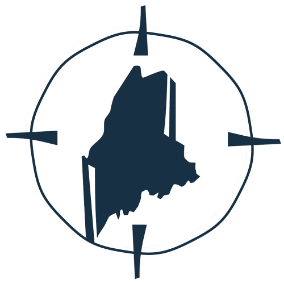 Background
Background
I started Vertical Bay in 2018, and we’re heading into our 6th farming season in summer 2024. I’ve always wanted to work on the water. Scallop farming has provided me with an opportunity to wake up everyday, head out on the boat across Penobscot Bay, and make a living producing food! It’s a new industry with lots of challenges. I’ve learned to love the process of figuring out how to solve problems on the water. I run the company with my wife Samantha.
Biggest Challenge
People love scallops. They’re a restaurant menu staple and are enjoyed by home cooks across the U.S. and globally. Farming scallops is a different story. In Maine, we’re trying to figure out a cost-effective way of growing these shellfish that fits within the fabric of our working waterfront. Currently, there are challenges (which we think are solvable) at every step in the production process. The industry is reliant on wild spat collection, which is a balance between timing, depth, and location. Seed handling and sorting is tricky, as scallops are pretty finicky creatures and don’t like being out of the water for too long. On the grow-out side, we’re trying to validate the ear-hanging method, which requires a good amount of labor upfront but can save us some time and space further down the line. The real challenge is trying to figure out all of these production steps at the same time!
Future Aspirations
Maine’s working waterfront is made up of smart, hard working risk takers who are fiercely committed to making a living on the ocean. Despite a sometimes rough exterior, lots of these individuals are always willing to lend a hand. I’ve had tons of help along the way, and I definitely wouldn’t be where I am today without the support of folks who have either fished for decades or are newcomers to the fishing or aquaculture industries. I’m always grateful for the collaborative nature of this community
My hope is that Vertical Bay can be a model for those that come after us. The potential for scallop farming to gain a foothold within Maine’s economy is strong, and our goal is to de-risk as much of the process as possible so that others can benefit as well. Ultimately, if there were 10 – 15 new farms along the coast over the next decade, it would have a hugely positive impact on some of our coastal communities. We’ve benefitted from decades of research and R&D led by the research institutions in the state and some of the early commercial adopters. We hope to build on that work and keep moving this industry forward.


